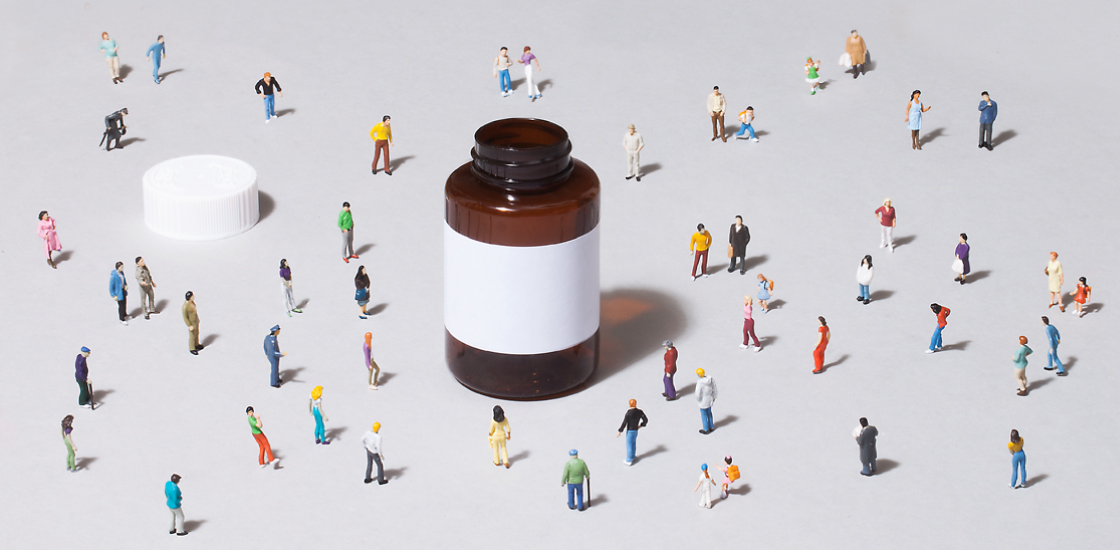Measuring the outcome of clinical trials
Recent articles
Featured articles
Why don’t we have better drugs for autism?
Clinical trials for autism drugs have been plagued with problems: bad design, the wrong measures, too broad a range of participants. All that is finally starting to change.

Why don’t we have better drugs for autism?
Clinical trials for autism drugs have been plagued with problems: bad design, the wrong measures, too broad a range of participants. All that is finally starting to change.
Questions for Gahan Pandina: New tool may aid autism trials
A new ‘knowledge engine’ collects reams of behavioral and sensory data to create highly sensitive outcome measures for autism drugs.

Questions for Gahan Pandina: New tool may aid autism trials
A new ‘knowledge engine’ collects reams of behavioral and sensory data to create highly sensitive outcome measures for autism drugs.
Despite setbacks, fragile X drugs file into clinical trials
Our infographic displays efforts to develop treatments for fragile X syndrome. So far, none of them have passed muster in clinical trials.

Despite setbacks, fragile X drugs file into clinical trials
Our infographic displays efforts to develop treatments for fragile X syndrome. So far, none of them have passed muster in clinical trials.
From the archives
The innovators: How families launch their own autism studies
Some parents are starting ‘N-of-1’ studies for autism, but their efforts don’t always get taken seriously.

The innovators: How families launch their own autism studies
Some parents are starting ‘N-of-1’ studies for autism, but their efforts don’t always get taken seriously.
Questions for James McPartland: Biomarkers for better trials
A $28 million initiative aims to develop objective tools for tracking social skills in children with autism. The initiative’s leader outlines its approach.

Questions for James McPartland: Biomarkers for better trials
A $28 million initiative aims to develop objective tools for tracking social skills in children with autism. The initiative’s leader outlines its approach.
Devising spectrum of tests for different types of autism
Finding biomarkers for different forms of autism may lead to more effective treatments for each.

Devising spectrum of tests for different types of autism
Finding biomarkers for different forms of autism may lead to more effective treatments for each.
Better behavioral tests may save trials of autism treatments
Trials to test drugs for autism suffer from subjective measurements and placebo effects. Helen Tager-Flusberg outlines how to ferret out the true effects of potential autism therapies.

Better behavioral tests may save trials of autism treatments
Trials to test drugs for autism suffer from subjective measurements and placebo effects. Helen Tager-Flusberg outlines how to ferret out the true effects of potential autism therapies.
Some people in ‘failed’ drug trial for autism showed benefit
An experimental drug called arbaclofen improved autism features in about 13 percent of people who took it in a shuttered clinical trial.

Some people in ‘failed’ drug trial for autism showed benefit
An experimental drug called arbaclofen improved autism features in about 13 percent of people who took it in a shuttered clinical trial.
Questions for Eric Klann: Translating treatments for fragile X
Treatments for fragile X syndrome may be more successful if they block direct targets of the key missing protein, says Eric Klann.

Questions for Eric Klann: Translating treatments for fragile X
Treatments for fragile X syndrome may be more successful if they block direct targets of the key missing protein, says Eric Klann.
Why trials of autism treatments have a placebo problem
People with autism — and their family members — are susceptible to powerful placebo effects. Some researchers are using the problem to better understand this mystifying phenomenon.

Why trials of autism treatments have a placebo problem
People with autism — and their family members — are susceptible to powerful placebo effects. Some researchers are using the problem to better understand this mystifying phenomenon.
Questions for Elizabeth Berry-Kravis: Measuring drug effects
Drugs designed to treat fragile X syndrome have yet to show substantial benefits in people. But rather than abandon them, child neurologist Elizabeth Berry-Kravis suggests a new way to measure their effectiveness.

Questions for Elizabeth Berry-Kravis: Measuring drug effects
Drugs designed to treat fragile X syndrome have yet to show substantial benefits in people. But rather than abandon them, child neurologist Elizabeth Berry-Kravis suggests a new way to measure their effectiveness.
Better tools needed to assess clinical trials
The past few years have seen an unprecedented number of clinical trials for experimental drugs to treat autism-related disorders, most notably for fragile X syndrome. But as the trials progress, scientists are calling for better methods to measure the drugs’ effectiveness.

Better tools needed to assess clinical trials
The past few years have seen an unprecedented number of clinical trials for experimental drugs to treat autism-related disorders, most notably for fragile X syndrome. But as the trials progress, scientists are calling for better methods to measure the drugs’ effectiveness.
Explore more from The Transmitter
Dendrites help neuroscientists see the forest for the trees
Dendritic arbors provide just the right scale to study how individual neurons reciprocally interact with their broader circuitry—and are our best bet to bridge cellular and systems neuroscience.

Dendrites help neuroscientists see the forest for the trees
Dendritic arbors provide just the right scale to study how individual neurons reciprocally interact with their broader circuitry—and are our best bet to bridge cellular and systems neuroscience.
Two primate centers drop ‘primate’ from their name
The Washington and Tulane National Biomedical Research Centers—formerly called National Primate Research Centers—say they made the change to better reflect the breadth of research performed at the centers.

Two primate centers drop ‘primate’ from their name
The Washington and Tulane National Biomedical Research Centers—formerly called National Primate Research Centers—say they made the change to better reflect the breadth of research performed at the centers.
Post-infection immune conflict alters fetal development in some male mice
The immune-conflict between dam and fetus could help explain sex differences in neurodevelopmental conditions.

Post-infection immune conflict alters fetal development in some male mice
The immune-conflict between dam and fetus could help explain sex differences in neurodevelopmental conditions.